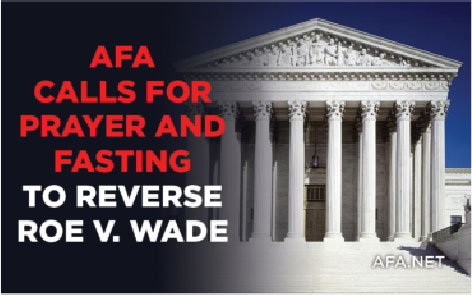
Memorial Day Tribute
The first long weekend of the summer has arrived. More than just a time for an extra day off of work, a grill out and the ability to begin wearing white, it is a time to honor all those who lost their lives defending American freedom in all of the wars our great country has encountered. We at the Right to Life Action Coalition and our 31-member organization across Ohio are grateful to these Americans and for the sacrifice of their families.
654,000-the number of American lives lost in USA wars since 1776
6,540,000-the number of unborn American lives lost in abortion since 1973
This weekend, as we pray for the soldiers that never made it home, let us pray for the babies that were also never taken home. As we pray for the soldiers killed in the violence of war, let us pray for the babies killed by the violence of forceps and vacuums. As we pray for the families of the lost soldiers, let us pray for the families that suffer from the loss of an aborted child. America, America, may God shed His grace on thee.


Telehealth abortion demand is soaring. But access may come down to where you live.
On the day of the leaked draft of the Supreme Court decision to overturn Roe v. Wade, a woman named Nora was at home in her one-bedroom apartment getting through a medical abortion. She’d stocked up on menstrual pads and painkillers, and steeled herself to get through a tough day.
For Nora, who lives in upstate New York, deciding to end the pregnancy was hard. But getting the Food and Drug Administration-approved abortion pills was not.
She got a medical consult online and received the pills by mail, through a provider called Aid Access. It’s one of a handful of U.S. telehealth abortion services that have sprung up in recent years.
As many U.S. states gear up to restrict abortion access in anticipation of the Supreme Court decision, the physicians, midwives and nurse practitioners behind these services are preparing for an even bigger surge in demand.
“The future of abortion access is going to be getting pills out there and into the hands of people,” says Robin Tucker, a nurse midwife and nurse practitioner who provides abortions through Aid Access and in private practice.
While the pills were approved by the FDA in 2000, their use made up of all abortions by 2011, lagging behind procedural, or “surgical,” abortions. By 2020 medication-based abortions accounted for just over half of abortions in the United States.
Despite its fast expansion, abortion- rights advocates caution that telehealth abortion will not be a quick fix to the problem of abortion access if Roe v. Wade is overturned.
Alina Salganicoff, a senior vice president at the Kaiser Family Foundation, who researches telehealth abortion, says there are many legal “gray areas” which are likely to become even more ambiguous if Roe is overturned: What will it mean for a patient to get an abortion in one state if her doctor is in another? What will happen to friends or family members that send pills to patients in states where abortion is banned? Can anti-abortion states prosecute doctors across state lines, and will abortion-friendly states be able to protect their clinicians?
“One issue is how the rules will play out, and the other issue is how they will be enforced,” Salganicoff says, “The lawyers will be busy.”
Beside legal restrictions, there are other obstacles to using telemedicine for abortions. For one thing, majority of people who seek abortions are poor or low- income, and may not have the resources or technology seek abortion care online.
Telehealth abortion providers say they screen for complications, such as patients with symptoms of ectopic pregnancies or severe anemia, as well as those with pregnancies at a later gestational age. Still, some doctors worry that these remote screenings will miss critical warnings that would be picked up with ultrasounds and bloodwork — must-haves in the traditional model of care. Even without an ultrasound very few people require in-person follow-up care, like an emergency room visit.
And for those who have cleared the logistical and medical hurdles, the experience can still be weighted with social pressure and shame.

Battle Plan: Prayer and fasting for reversal of Roe v. Wade.
The fight to end abortion in America is a spiritual battle. The rulers and powers of this present darkness are working hard to make sure legalized
abortion remains the law of the land. We must respond by entering into this spiritual battle with faith and courage.
AFA’s battle plan for the reversal of Roe v. Wade includes prayer and fasting.
We invite you to join us in taking this pledge.
Please join us in asking God to grant these five specific requests.
- We pray that the Supreme Court will overturn Roe v. Wade once and for all.
- We pray for each of the U.S. Supreme Court Justices. We pray that the Holy Spirit will strengthen their minds and their wills so that they will truly understand how precious each life is and vote in favor of reversing Roe v. Wade in the Dobbs case.
- We pray, in particular, for Chief Justice John Roberts, that he will be filled with the wisdom, courage and prudence he needs to lead the court to a majority consensus to overturn Roe. We pray that the Lord Jesus Christ will bind any evil spirits, powers and forces seeking to keep Roe in place and defeat their wicked strategies.
- We pray for God the Father’s mercy and forgiveness over our country for the millions of lives lost and destroyed through abortion.
We are also asking each of you to join us in making some sacrifice for the reversal of Roe v. Wade this year. Perhaps pause your digital TV subscription for a month or give up some pleasant food – ice cream, sweet tea, candy, etc. – as Daniel the prophet did as he prayed to God (Daniel 10:3). During this time of fasting, focus your prayers toward ending abortion.
5 prayer requests and 1 sacrifice. Unified in prayer across the country, God can heal our land from the blight of abortion, bring victory in this battle, and truly change our country for generations to come.

They Say Black Lives Matter But 74% of Abortions in MississippiKilled Black Babies.
The abortion industry is racist. No other entity destroys the lives of so many black children in America every year.
Even though abortion activists claim the opposite, abortion is rooted in racism and other forms of discrimination, and both statistics and the history of its key advocates reveal the truth.
And in Mississippi, a key state that is fighting to protect unborn babies, abortion rates in the black community are especially high.
According to the CDC report, 74 percent of the 3,180 abortions in the state in 2019 were on black mothers — meaning 2,532 black babies were aborted. To put that into perspective, only 40 percent of the Mississippi population is black, according to census data.
While abortions hurt families of every race and color, black Americans have a disproportionately high number of abortions compared to other racial groups. Census data indicates that African Americans make up about 13 percent of the U.S. population, but they have nearly 40 percent of all abortions.
In the words of Alveda King, chair of the Center for the American Dream at the America First Policy Institute and the niece of Dr. Martin Luther King Jr., “Abortion is one of the most violent, reprehensible, discriminatory crimes against humanity. There is overwhelming evidence that many abortions have been performed to reduce minority populations in America.”

Embryo-Discarding Big Fertility Industry Is Panicked Over Roe.
The likely overturning of Roe v. Wade has panicked many reproductive technology advocates, specifically the American Society for Reproductive Medicine. When abortion policy is decided by individual states, personhood laws such as Louisiana’s Human Life Protection Act and Texas’s Heartbeat Act could immediately criminalize many aspects of Big Fertility’s business model. That’s because destroying human life is part and parcel of in vitro fertilization (IVF).
First, IVF often involves the preimplantation screening of 6 or 7 day old blastocysts (early embryos), to not only determine the likelihood of implantation success, but also screen for chromosomal abnormalities such as Down Syndrome, and inherited genetic anomalies such as breast cancer, cystic fibrosis, and spinal muscular atrophy. Only the tiny humans determined to be “genetically healthy and normal” are transferred for implantation or frozen for future use. The rest are discarded.
But even if IVF babies aren’t discarded, they still aren’t out of the woods. Many are considered “surplus” or “leftovers” and cryogenically frozen. We currently have more than 1 million frozen embryos in this country because the practice is so widespread. If embryos are legally considered human beings, clinics may violate the law if they continue discarding or freezing those “extra” and “unwanted” embryos.
Further, pro-life laws could hinder the widespread practice of abortion “selective reduction,” standard in surrogacy contracts. Not only is there concern that clinics could be in violation of state law if they discard chromosomally abnormal embryos, but they will no longer be allowed to “selectively reduce” any “extra” children who may implant.
While the Supreme Court declaring the humanity of the preborn under the U.S. Constitution would be an enormous step toward preserving embryonic life, pro-life legislators do not anticipate IVF being affected solely by the overturning of Roe.
“There has not been sufficient regulation of IVF, but virtually no state has sought to prohibit IVF because of its popularity. If there has not been much regulation before Dobbs, I don’t see a lot of regulation coming after Dobbs. But it’s possible that stronger regulations might arise in red states,” said Clarke Forsythe, a senior counsel at Americans United for Life.
Genevieve Marnon, legislative director of Right to Life of Michigan, says, “First, each state will be different because of different state laws and state constitutions.
Marnon gave the example of Michigan’s state law: “We have a a2008 constitutional provision that expressly grants the right to experiment on leftover embryos from IVF. This constitutional right will not be impacted by removing a federal constitutional right to abortion. And in Michigan, we have a complete ban on abortion, but our constitution would supersede a state statute. In other states, abortion on demand throughout all 9 months will continue unabated. IVF will not be affected in any way whatsoever.”
Big Fertility’s fear that pro-life laws will wreck their business model is justified, even if these fears are likely overestimated.
The industry has long violated children’s right to life, right to their mothers and fathers, and right to be born free — not bought and sold.
